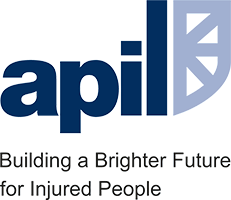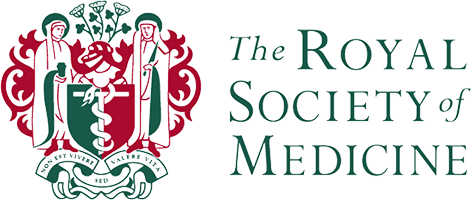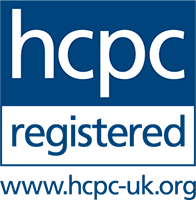enquiry@cechambers.co.uk
Dr Rankin has prepared medico-legal reports for the courts since 2004 and his full CV is available to solicitors on request. Dr Rankin retired from the NHS and academia in 2019 and now works full-time in medico-legal practice and directs Cotton Exchange Chambers.
He has previously held various senior positions within the two sister organisations of Great Ormond Street Hospital for Children (GOSH) NHS Trust and UCL Great Ormond Street Institute of Child Health. Working here for over 20 years as Hon. Associate Professor, Consultant Paediatric Neuropsychologist, Senior Clinical Lecturer, Senior Research Fellow, and Director of the UK’s Clinical Paediatric Neuropsychology Training Programme. He developed and directed the latter for 9 years and it remains the only course of its kind in Europe. It is the BPS’s national accredited programme for UK clinical and educational psychologists to become qualified as clinical paediatric neuropsychologists. Therefore, Dr Rankin has been at the forefront of developing and delivering the scientific syllabus required for UK child psychologists to understand children’s brain injuries and subsequent cognitive, social and emotional development, and the evidence base for educational provision and rehabilitation.
He has published peer-reviewed papers and book chapters, been an invited speaker at international conferences and had his work reported in the national press.
Clinically, as well being an employee of GOSH & UCL, Dr Rankin has previously been employed by Guy’s and St Thomas’ Hospital, Alder Hey Children’s Hospital, and the national specialist ‘Young Epilepsy’ School and FE college. His clinical and research work has been at forefront of practice development (see references) and has included:
Dr Rankin has held a number of senior positions within the British Psychological Society (BPS) including being nationally elected by peers to spend 6 years as: Chair Elect, Chair and Vice Chair of the Division of Neuropsychology. He has been instrumental in leading the profession and guiding parliamentary peers and policy makers in relation to peoples’ neuropsychological needs following brain injury and neurodevelopmental disorders.
In 2007 Dr Rankin was awarded Fellowship of the Royal Society of Medicine. In 2016 he was awarded the UK’s highest award in professional neuropsychology; the BPS Barbara Wilson Lifetime Achievement Award.
Roberts, K and Rankin, P. M. A cognitive help or hindrance? A systematic review of cognitive behavioural therapy for the treatment of anxiety in young people with autism spectrum disorder. Child Clinical Psychology and Psychiatry. (2025) Apr; 30(2):419-435
Pahs, G., Rankin, P. M., Cross, J. H., Croft, L., Northam, G. B., Liegeois, F., Greenway, S., Harrison, S., Vargha-Khadem, F., Baldeweg, T (2013) Asymmetry of planum temporale constrains interhemispheric language plasticity in children with focal epilepsy. Brain. Oct;136(Pt 10):3163-75
Croft L.J., Rankin, P.M., Liégeois F., Banks T., Cross J. H., Vargha-Khadem, F., Baldeweg,T. (2013) To speak, or not to speak? The feasibility of imaging overt speech in children with epilepsy. Epilepsy Research Nov;107(1-2):195-9.
Crawford, J. R., Anderson, V., Rankin, P. M., Macdonald, J. (2010). An index-based short-form of the WISC-IV with accompanying analysis of the reliability and abnormality of differences. British Journal of Clinical Psychology, 49, (2), 235-58.
Briscoe, J. & Rankin, P. M. (2009). Exploration of a ‘double-jeopardy’ hypothesis within working memory profiles for children with Specific Language Impairment. International Journal of Language and Communication Disorders, 44 (2), 236-250.
Pahs, G., Rankin, P. M., Cross, J. H., Northam, G., Vargha-Khadem, F., Baldeweg, T. (2008) Language lateralisation in childhood-onset focal epilepsy: Evidence from fMRI Neuropediatrics 39(05).
Rankin, P. M. & Vargha-Khadem, F. Neuropsychological Evaluation-Children. (2008) In J. Engel & T. A. Pedley (Eds). Epilepsy: A comprehensive textbook- Second Edition. Lippincott Williams & Wilkins.
Zolkipli Z, Aylett S, Rankin P. M, Neville B. G. (2007). Transient exacerbation of hemiplegia following minor head trauma in Sturge-Weber syndrome. Developmental Medicine and Child Neurology, 49 (9), 697-9.
Rankin P. M., Harrison S., Chong W. K., Boyd S., Aylett S. E. (2007). Pyridoxine dependent seizures: a family phenotype that leads to severe cognitive deficits, regardless of treatment regime. Developmental Medicine and Child Neurology, 49 (4), 300-305.
Baldwin, A, Demelweek, C, Rankin, P. M. Cognitive Deficits. (2006) In R. E. Appleton & A. Baldwin (Eds). Management of brain injured children-Second edition. Oxford University Press.
Demelweek, C., Baldwin, A., Rankin, P. M. (2006) Social, emotional and behavioural issues. In R. E. Appleton & A. Baldwin (Eds). Management of brain injured children-Second edition. Oxford University Press.
Rankin, P. M. & Hood, J. (2005). Designing clinical interventions for children with specific memory disorders. Pediatric Rehabilitation, 8 (4), 283-297.
Hood, J. & Rankin, P. M. (2005). How do specific memory disorders present in the school classroom? Pediatric Rehabilitation, 8 (4), 272-282.
Hood J., Baird G., Rankin P. M., Isaacs E. (2005). Immediate effects of methylphenidate medication on cognitive attention skills of children with Attention Deficit Hyperactivity Disorder. Developmental Medicine and Child Neurology, 47, 408-414.
Rankin P. M., Bentall R. P., Hill J., Kinderman P. (2005). Parental Relationships and Paranoid Delusions: Comparisons of Currently Ill, Remitted and Normal Participants. Psychopathology, 38, 16-25.
Irwin K. Z., Rankin P. M., Parker A., Binnie C. D., Robinson R. O. (1999). Vagal Nerve Stimulation in Epileptic Encephalopathies: Addendum. Pediatrics, 103, 4, 782.
Rankin P. M. & O’Carroll P. J. (1995). Reality discrimination, reality monitoring, and disposition towards hallucination. British Journal of Clinical Psychology, 34, 4, 517-528.
Collins, A., MacMillan, T., Rankin P. M., (2015). Clinical Neuropsychology. In J Hall., D. Pilgrim., G Turpin. Clinical Psychology in Britain; Historical Perspectives. British Psychological Society.
Dr Rankin has qualifications in:



